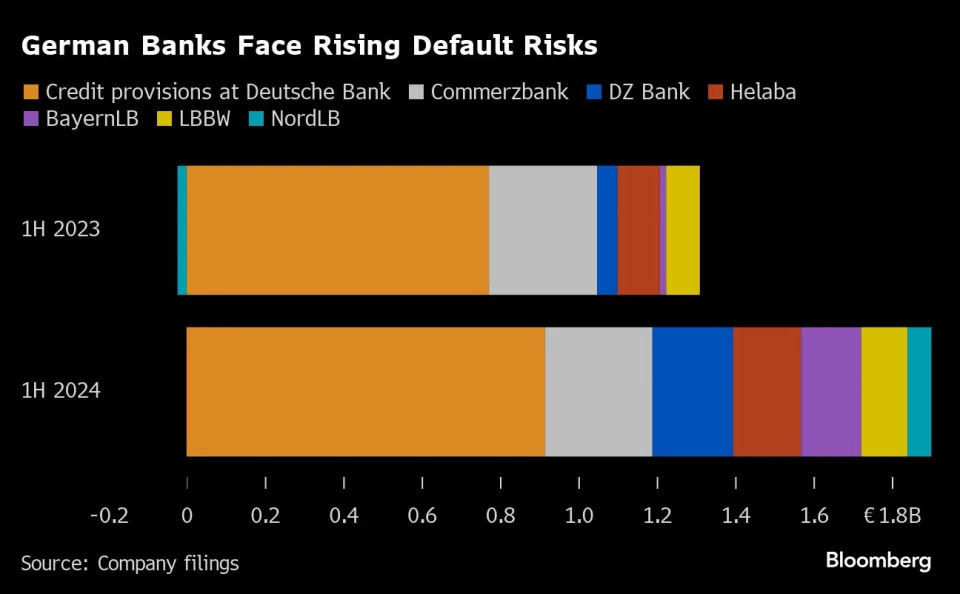(Bloomberg) -- Germany’s banks are starting to feel the pinch from the stagnating economy.
Risk provisioning by the country’s largest lenders rose almost 50% in the first half of the year, with many banks saying that loans to companies and consumers in trouble were a big part of the reason. Several said things may get worse before they get better.
“Geopolitical uncertainties will continue to take their toll on the economy as a whole in the remaining months of the year,” DZ Bank AG said when presenting results on Thursday. The lender — Germany’s second-biggest by assets — raised risk provisions fourfold compared with the year-earlier period. Most other banks set aside more money as well.
Germany’s economy has been struggling ever since the Russian invasion of Ukraine put an abrupt end to an era of low energy prices. Rising borrowing costs have added to the burden, leaving the country in a prolonged stagnation, with hopes recently fading for a quick rebound.
Germany is “falling into crisis,” Ifo Institute President Clemens Fuest warned earlier this week.
Corporate insolvencies in Germany rose almost 30% in the six months through June from a year earlier, hitting the highest level in a decade, according to consumer credit rating firm Creditreform.
Among companies facing financial difficulties are chemicals manufacturers OQ Chemicals GmbH and Heubach GmbH, commodities trader BayWa AG and battery maker Varta AG. Lenders to these firms include BayernLB, Commerzbank AG, Deutsche Bank AG, LBBW and NordLB, according to data compiled by Bloomberg.
It’s possible that corporate insolvencies will rise “in the coming months” given issues including higher borrowing costs, Commerzbank said in its second-quarter report published earlier this month. The lender increased credit provisions in its corporate clients segment by 52% in the first half of the year.
--With assistance from Stephan Kahl.


